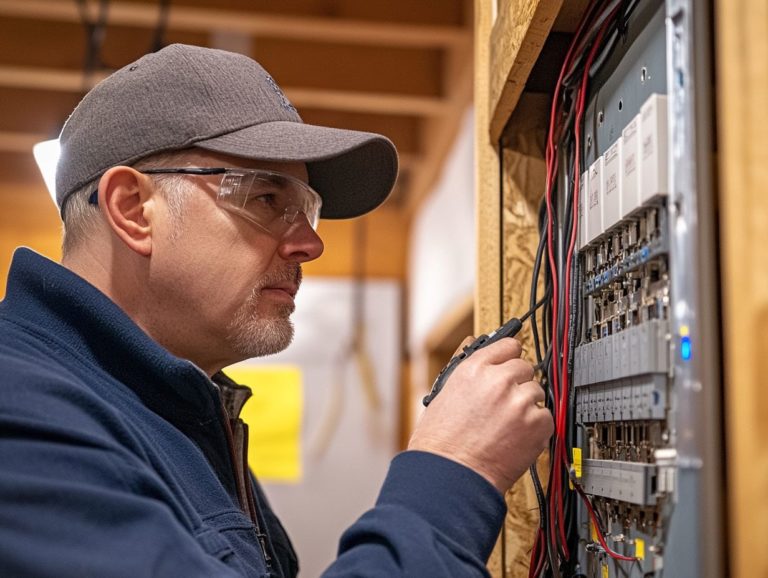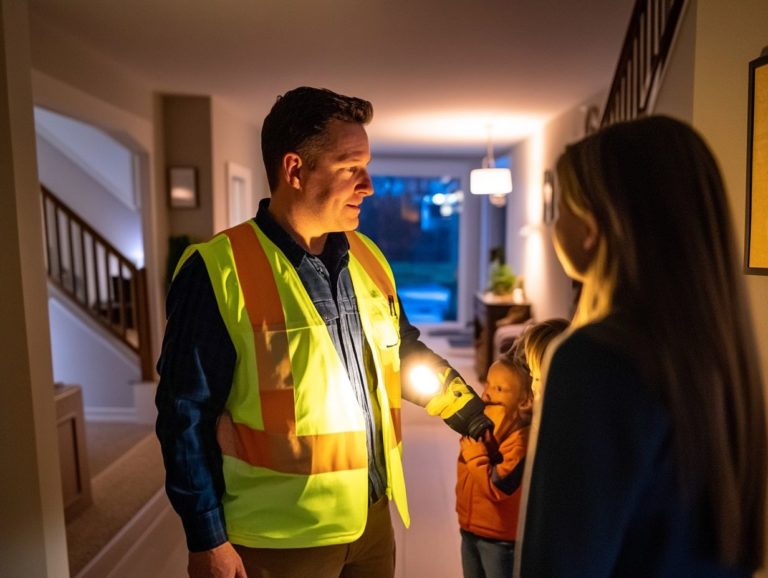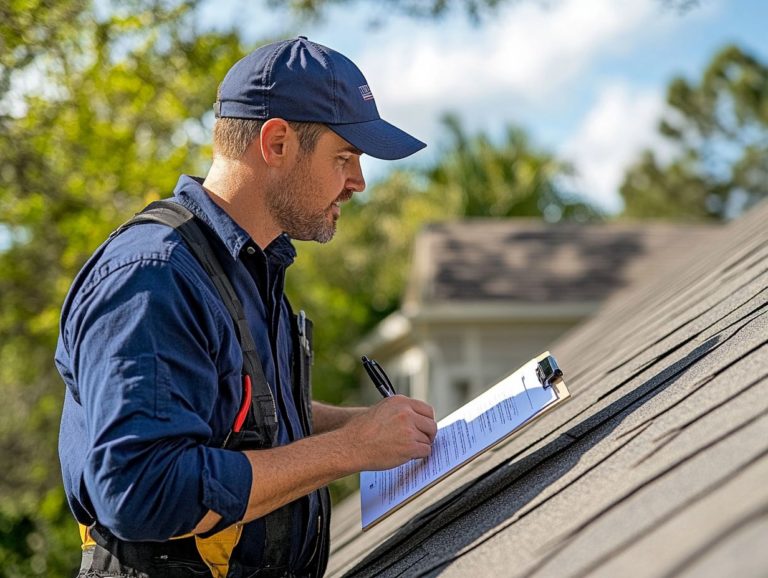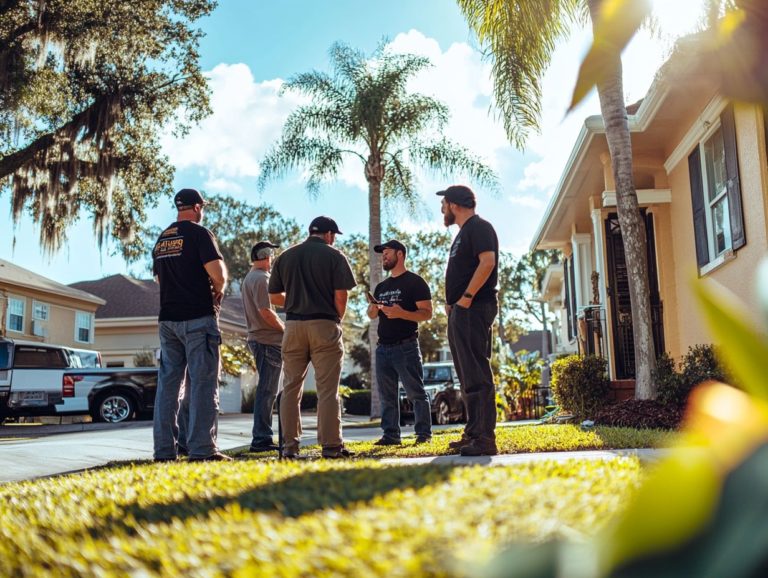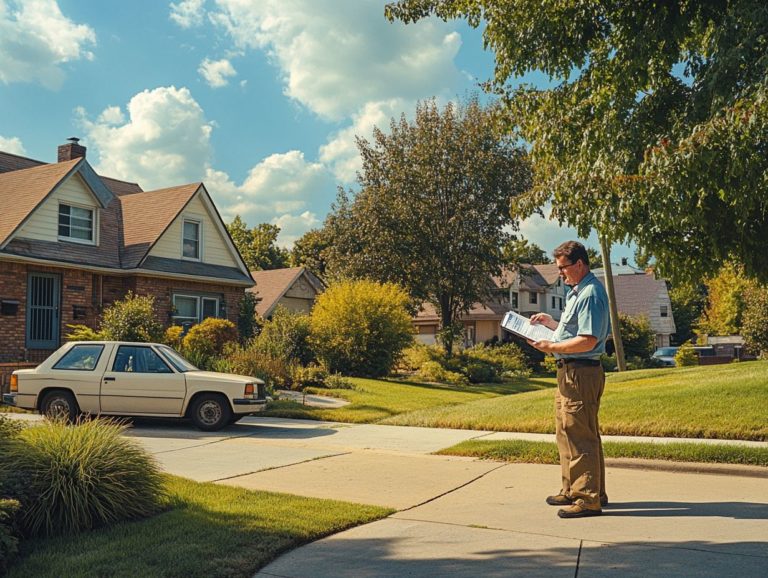Home Inspection Tips for Condo Buyers
Buying a condo is not just a purchase; it’s an exciting adventure! But ensuring that your new home is in excellent condition is essential.
A thorough home inspection can uncover hidden issues that could affect your investment down the line. This article delves into the critical purpose and benefits of a home inspection for condo buyers.
It highlights specific areas you should pay attention to during the process and how to select the right inspector. This process safeguards your investment and offers vital insights into the condo’s condition and any potential renovation risks that may lie ahead.
You’ll also find guidance on preparing for the inspection, interpreting the findings, and negotiating with the seller based on those results. By following these steps, you’ll make smart choices that protect your investment.
Contents
- Important Points to Remember:
- Why a Home Inspection is Important for Condo Buyers
- What to Look for During a Condo Inspection
- Choosing a Home Inspector
- Preparing for the Home Inspection
- Interpreting the Inspection Report
- Negotiating Based on Inspection Results
- Frequently Asked Questions
- What is a home inspection and why is it important for condo buyers?
- When should a home inspection be scheduled for a condo purchase?
- Who should conduct the home inspection for a condo purchase?
- What should condo buyers look for during a home inspection?
- Are there any specific concerns to look for in a condo unit during a home inspection?
- Can a home inspection report be used for negotiation purposes when buying a condo?
Important Points to Remember:

A home inspection is crucial for condo buyers to ensure the safety and functionality of their potential new home. During a condo inspection, pay attention to key areas such as the heating, ventilation, and air conditioning (HVAC) system, plumbing, and structural components for any potential red flags. For home inspection tips for first-time buyers, consider the qualifications of the inspector and ask for references. Use the inspection report to negotiate repairs or address any issues with the seller.
Why a Home Inspection is Important for Condo Buyers
A home inspection is an essential step for you as a potential buyer considering a condo. It serves to unveil any hidden issues that could impact the property’s value and your financial responsibilities as a homeowner. To ensure you make the right choice, check out this guide on how to choose a home inspector for high-rise condos.
Living in the city is becoming more popular, making it vital to have a professional inspector evaluate the unit before you make a purchase.
This proactive approach boosts your confidence and provides invaluable peace of mind, assuring you that you’re making a sound investment.
Ultimately, a comprehensive inspection serves as a vital tool, ensuring you re well-informed about your future home and any associated costs.
Purpose and Benefits of a Home Inspection
The primary purpose of a home inspection for you as a condo buyer is to ensure that the property’s condition aligns with your expectations. Understanding the basics of home inspection for buyers minimizes investment risk and reveals any necessary repair costs.
By conducting a thorough examination, you can identify significant issues such as structural concerns, plumbing deficiencies, or electrical problems that might escape notice during a casual walkthrough.
Understanding these potential challenges allows you to grasp your maintenance responsibilities and make informed decisions.
What to Look for During a Condo Inspection
When you conduct a condo inspection, it’s essential to hone in on critical areas such as common spaces, shared walls, and any potential red flags that may suggest underlying issues. Additionally, knowing how to prepare for a home inspection can further ensure a thorough evaluation.
Keep an eye out for signs of water damage and leaky appliances, as these can reveal deeper problems that could affect your investment.
Areas to Focus on and Potential Red Flags
When conducting a condo inspection, you should focus on both the interior of the unit and the overall health of the building. For buyers, knowing how to prepare for a home inspection is crucial. Look for potential red flags like mold, leaky dishwashers, and any structural issues that may require immediate attention.
Thoroughly examining the plumbing is essential; check for signs of leaks or corrosion, especially around the water heater and under sinks.
Don’t overlook the electrical systems either; flickering lights or outdated wiring can indicate deeper issues that might pose safety hazards.
The roof deserves your scrutiny as well. Signs of sagging or missing shingles could mean you’re in for costly repairs. Be on the lookout for water stains, peeling paint, or HVAC system problems, as these could lead to bigger headaches down the line.
By paying close attention to these critical areas, you can make informed decisions and steer clear of unexpected expenses.
Choosing a Home Inspector
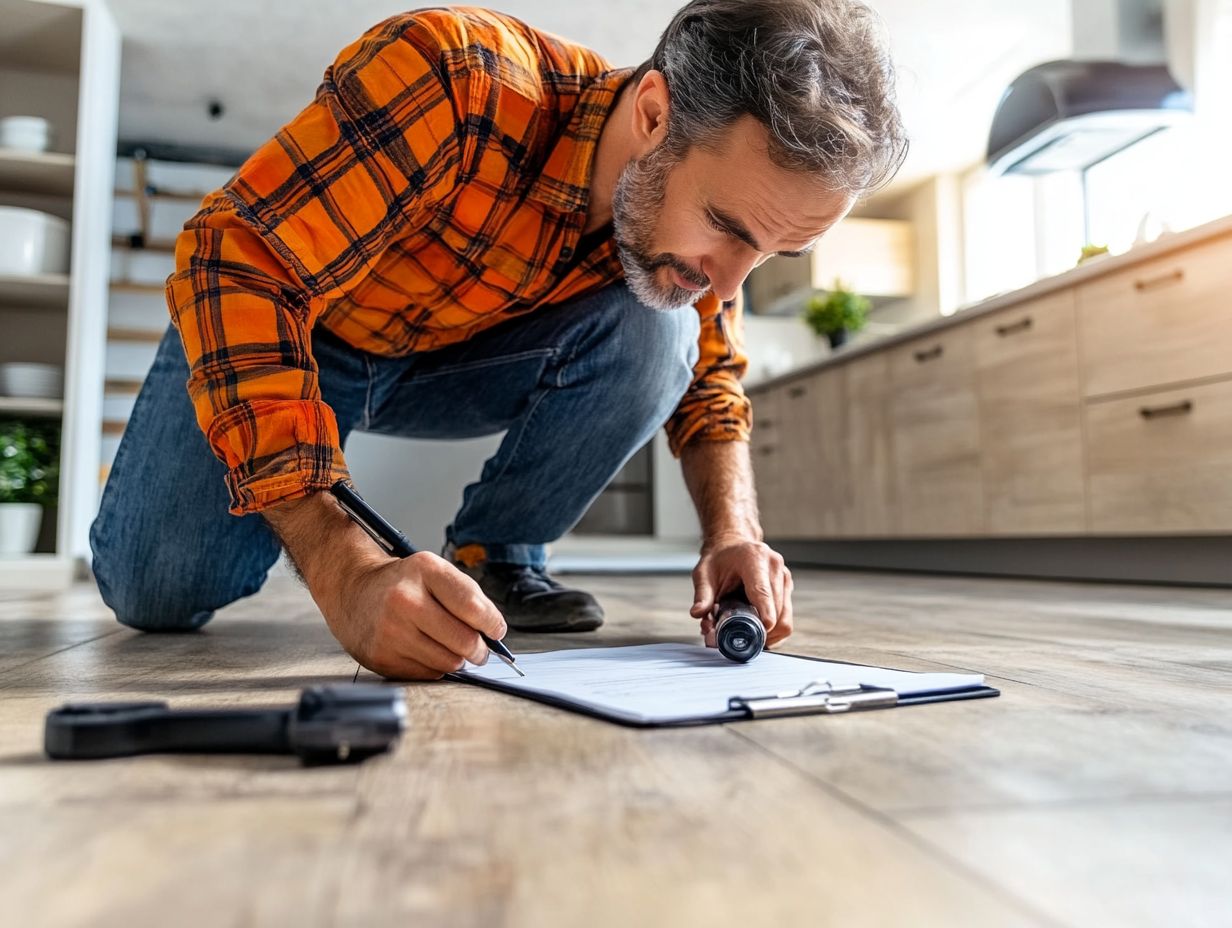
Selecting the right home inspector is crucial for condo buyers. Their qualifications and credentials profoundly influence the quality of the inspection and the accuracy of the findings, which in turn affects your responsibilities as a buyer moving forward.
Qualifications and Credentials to Consider
Select a home inspector based on their qualifications, certifications, and experience. Look for inspectors certified by recognized organizations like InterNACHI or ASHI.
These certifications indicate professionalism and a commitment to ongoing education. An inspector with experience in condo assessments knows the unique challenges of shared spaces.
Their expertise helps them identify potential issues that could affect your investment’s value and safety.
Preparing for the Home Inspection
To prepare for a home inspection, take essential steps to ensure a smooth process. Gather all relevant condo documents and address any minor maintenance issues.
Make a list of questions for the inspector to enhance your experience.
What to Do Before the Inspector Arrives
Before the inspector arrives, gather key documents and create an inspection checklist. Ensure all areas of the condo are accessible for a thorough check.
Include maintenance records and previous inspection reports to give the inspector a clearer picture of the property.
Check areas like the attic and basement to cover all vital systems. This preparation can help you uncover potential issues.
Interpreting the Inspection Report
Understanding the inspection report is critical for condo buyers. To ensure you get the most from the process, it’s important to know how to choose a home inspector who can provide clear insights, helping you grasp findings, prioritize repairs, and outline your next steps.
Understanding the Findings and Next Steps
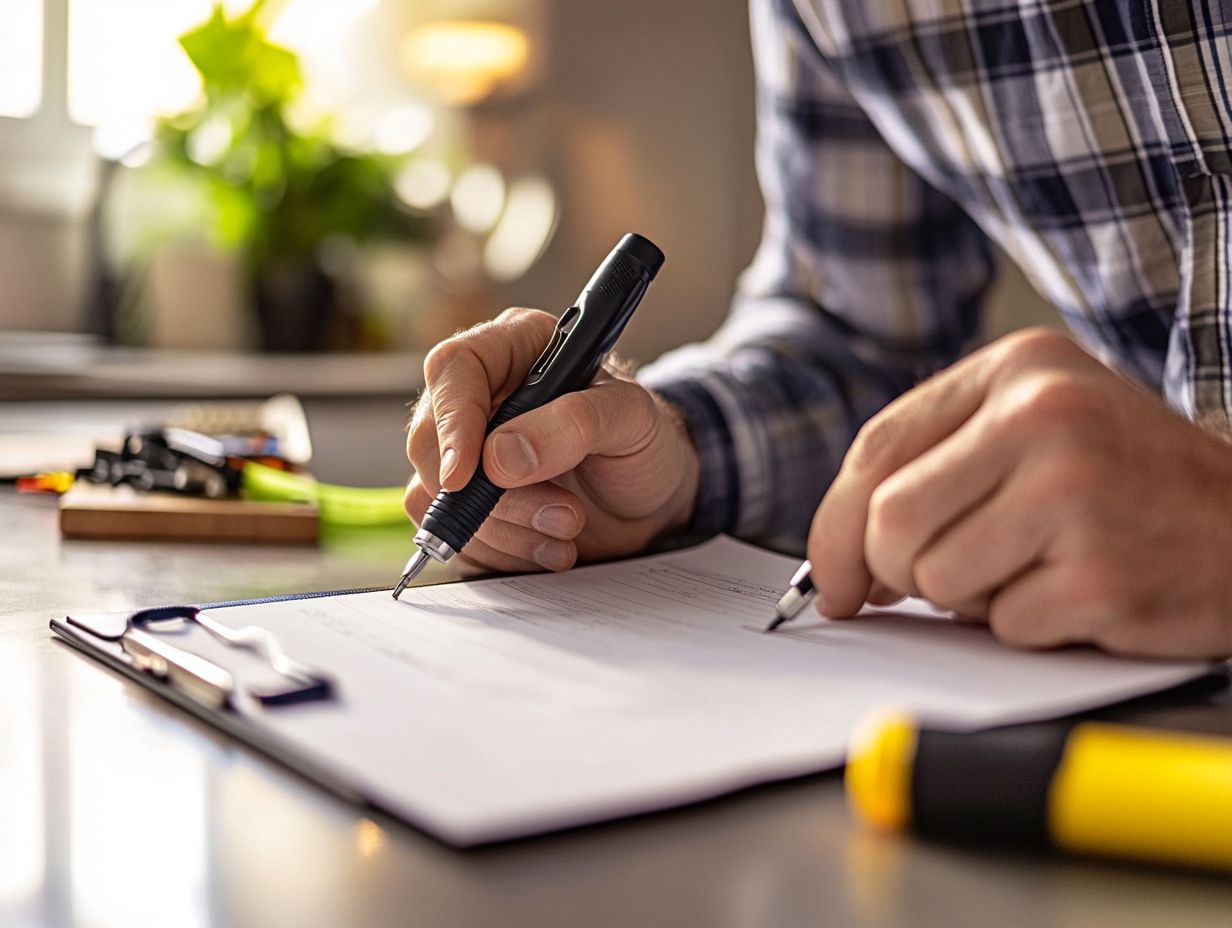
Review the inspection report closely. Identify major issues that need immediate attention and outline your next steps regarding repairs.
This assessment helps you differentiate between critical repairs and minor issues.
Consult professionals for significant concerns to make informed decisions. Also, consider negotiating with the seller regarding repairs or price adjustments.
This proactive approach enhances your safety and gives you clarity on future expenses.
Negotiating Based on Inspection Results
Negotiating based on inspection results is a key part of your home buying journey. This is your chance to address issues directly with the seller.
How to Address Issues with the Seller
When you re addressing concerns with the seller, it s essential to clearly express your issues based on the inspection results. Propose reasonable solutions to facilitate the negotiation process.
Pinpoint specific findings from the inspection report. Explain why these issues are significant. You can improve the discussion by suggesting how repairs or concessions can lead to a fair agreement that satisfies both parties.
Listening to the seller’s perspective is vital. It helps you understand their position and may lead to compromise. By maintaining a respectful tone and concentrating on collaborative solutions, you can foster a more productive dialogue, ultimately steering the discussion toward a resolution that benefits everyone involved.
Frequently Asked Questions
What is a home inspection and why is it important for condo buyers?
A home inspection is a thorough examination of a property’s condition, typically done before buying a home. It is crucial for condo buyers as it can uncover potential issues or concerns with the property, helping buyers make informed decisions and avoid costly surprises in the future.
When should a home inspection be scheduled for a condo purchase?
Schedule your home inspection right after your offer is accepted. This gives you ample time for repairs or negotiations before closing.
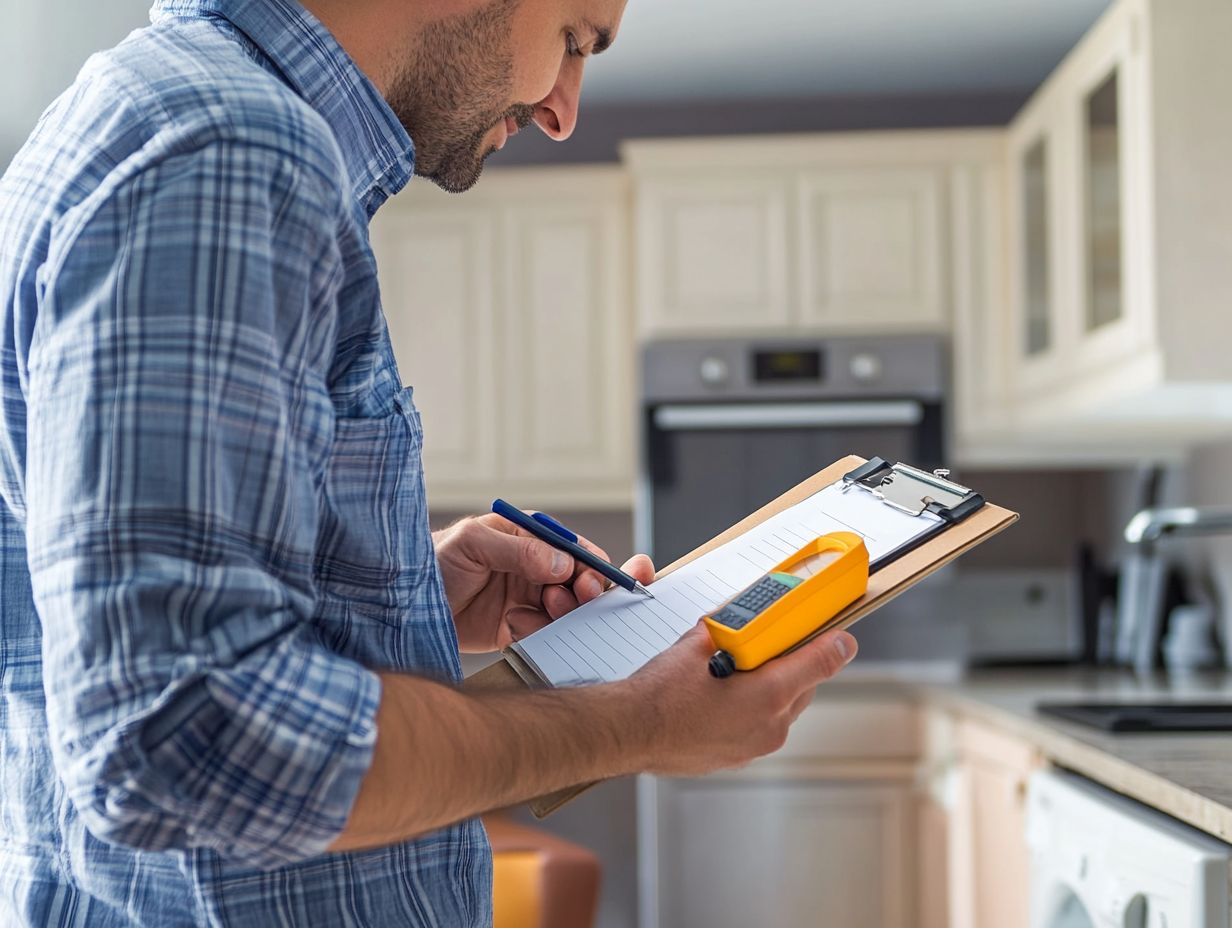
Who should conduct the home inspection for a condo purchase?
Don t wait! Hire a qualified inspector familiar with condos to ensure you re making a safe investment. They should also be licensed and insured.
What should condo buyers look for during a home inspection?
Condo buyers should pay attention to the overall condition of the unit, including plumbing, electrical, heating/cooling systems, and any visible signs of water damage. Additionally, consider checking home inspection tips for fixer-uppers for potential safety hazards, such as trip hazards or faulty smoke detectors.
Are there any specific concerns to look for in a condo unit during a home inspection?
Yes, specific concerns include the roof, plumbing and electrical systems, the presence of mold or pests, and any shared amenities or common areas. It s also important to check for potential noise or maintenance issues with neighboring units.
Can a home inspection report be used for negotiation purposes when buying a condo?
Yes, a home inspection report can be used as a bargaining tool for negotiating the final price of a condo. If major issues are uncovered during the inspection, buyers can request that the seller address them or lower the asking price to account for necessary repairs.


